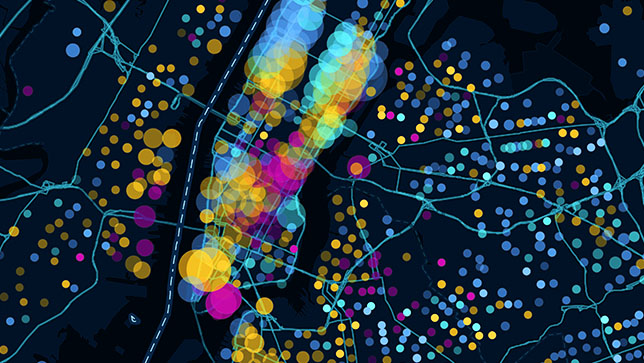ArcGIS for Criminal Intelligence

Delivery type:
Online, 12-week course, asynchronous
Instructor:
Stacy Belledin – Stacy Belledin is a former crime and intelligence analyst working for Jacksonville (FL) Sheriff’s Office and Lakewood (CO) Police Department. After 15 years in the field, Stacy worked for Esri as a training instructor, content specialist and consultant for public safety. Stacy is currently the owner and director of Amplified Analysis Solutions, a company dedicated to enhancing analytical capabilities for public safety organizations. She also is an associate faculty at Arizona State University and teaches several courses with the International Association of Crime Analysts (IACA).
Description:
This course will provide training on foundational concepts applying GIS to criminal intelligence analysis. Students will learn how to create a map, add datasets on a map, query, and filter data, and perform spatial analysis techniques to disseminate intelligence information and products to their agencies. The lessons will enable you to make GIS a part of your everyday intelligence practice.
Course topics include:
Online, 12-week course, asynchronous
Instructor:
Stacy Belledin – Stacy Belledin is a former crime and intelligence analyst working for Jacksonville (FL) Sheriff’s Office and Lakewood (CO) Police Department. After 15 years in the field, Stacy worked for Esri as a training instructor, content specialist and consultant for public safety. Stacy is currently the owner and director of Amplified Analysis Solutions, a company dedicated to enhancing analytical capabilities for public safety organizations. She also is an associate faculty at Arizona State University and teaches several courses with the International Association of Crime Analysts (IACA).
Description:
This course will provide training on foundational concepts applying GIS to criminal intelligence analysis. Students will learn how to create a map, add datasets on a map, query, and filter data, and perform spatial analysis techniques to disseminate intelligence information and products to their agencies. The lessons will enable you to make GIS a part of your everyday intelligence practice.
Course topics include:
- Adding data and imagery
- Crime pattern analysis
- Pattern of life analysis
- Association analysis
- 3D/visibility analysis
- Cell phone analysis
- Link charts and link analysis
- Creating products
- Web maps and apps
Difficulty level/intended audience:
Intermediate. Students are suggested to have a basic understanding of criminal intelligence analysis, use of analytical computer applications, and creating analytical products.
Knowledge prerequisites:
None, but it is suggested to have a basic understanding of criminal intelligence analysis.
Computer requirements:
The computer you will use to complete classwork – work or personal – must have the minimum specifications required to run ArcGIS Pro (latest version). You can find the requirements here, or you can run this utility to learn if you have the minimum requirements. You must also either a) have administrative rights and the capability to install software (.exe files) and download files to your computer or b) have IT support that can help you install software and download files. Note: if you have an older version of ArcGIS Pro, you must have your agency’s IT support to update to the latest version.
Software requirements:
The latest version of ArcGIS Pro, currently at ArcGIS Pro 3.3. Is not required to have a license before class, a license and sign in credentials will be provided during class and up to six weeks after class ends.
Course commitment:
Each week, a new module will open with a new topic. The module will include a video lecture of the concepts introduced and readings that are relevant to the concept. Each week will have a discussion to have students discuss the ways they see value in using GIS for criminal intelligence analysis. There will also be an assignment each week, typically a hands-on exercise in the software, applying the concepts of the module. This is a pass/fail class, and to receive a certificate of completion, the work must be completed. It is expected that a student will spend 3-5 hours per week in the course.
Course calendar:
The 12-week course will run quarterly. The 2025 schedule is:
Q1: January 6-March 28, 2025 – Course in progress.
Q2: April 7-June 27, 2025 – Registration is now closed! Class is FULL!
Q3: July 7-September 26, 2025 – Registration Opens May 12, 2025
Q4: October 6-December 26, 2025 – Registration Opens August 11, 2025
Course cost:
IALEIA members: $450.00 (USD)
Non-members: $550.00 (USD)
Registration:
Registration for the first training iteration is now open! To begin the registration process, complete the pre-registration form. You must fill out the form completely, including the information confirming your computer meets the minimum technical requirements. Your seat is not reserved until the requirements are confirmed by the instructor. If you meet the requirements, you will receive an email with an invoice to complete your registration. Registrations that have not been paid by the Monday two weeks prior to class will be removed from the class.
